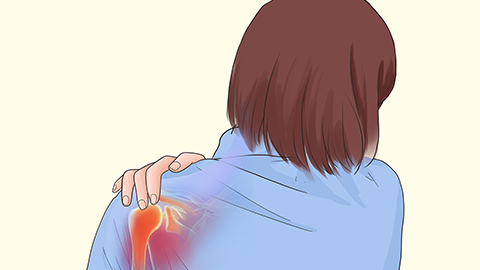Why does acupuncture for shoulder periarthritis make it worse?
Generally, the phenomenon of "getting worse with acupuncture" for shoulder periarthritis refers to a worsening of symptoms after acupuncture treatment. This may be related to overexertion, cold exposure, abnormal shoulder joint structure, muscle imbalance, or joint degeneration. If discomfort occurs, timely medical consultation is recommended. The specific analysis is as follows:

1. Overexertion
After acupuncture treatment, if patients do not rest adequately and continue to engage in heavy physical labor or carry heavy objects, it may lead to excessive fatigue of the shoulder muscles, thus worsening the pain. Adequate rest should be taken after acupuncture treatment, overexertion avoided, and stress on the shoulder reduced to promote recovery.
2. Cold Exposure
After acupuncture, the pores are open, and if proper warmth is not maintained, cold air may invade, causing shoulder cold exposure and further aggravating the pain. It is important to keep warm after acupuncture, wear additional clothing when going outdoors, and avoid showering for 24 hours to prevent cold exposure.
3. Abnormal Shoulder Joint Structure
Abnormal shoulder structure may be caused by injuries such as rotator cuff damage or subacromial space narrowing. Acupuncture might stimulate damaged tissues, thereby worsening the pain of periarthritis. It may be accompanied by restricted shoulder movement and weakness. Medications such as ibuprofen sustained-release capsules, diclofenac sodium enteric-coated tablets, and amoxicillin capsules may be used according to medical advice.
4. Muscle Imbalance
Muscle imbalance may be caused by overexertion, among other factors. Shoulder muscle imbalance may lead to uneven strength, worsening symptoms of periarthritis. It may also be accompanied by shoulder aches and stiffness. Treatment options may include medications such as mecobalamin tablets, vitamin B1 tablets, and vitamin B6 tablets, as advised by a physician.
5. Joint Degeneration
Joint degeneration may be caused by factors such as aging. Changes such as ligament laxity and tendon thickening may lead to shoulder joint instability, making it prone to injury and triggering severe periarthritis. Symptoms may include shoulder pain and swelling. Treatment may involve medications such as meloxicam tablets, celecoxib capsules, and cefixime tablets, as directed by a physician.
In daily life, maintaining proper sitting and standing posture is important to avoid prolonged poor positioning of the shoulders. Appropriate shoulder exercises, such as wall climbing and circular movements, can help strengthen shoulder muscles and improve flexibility.





